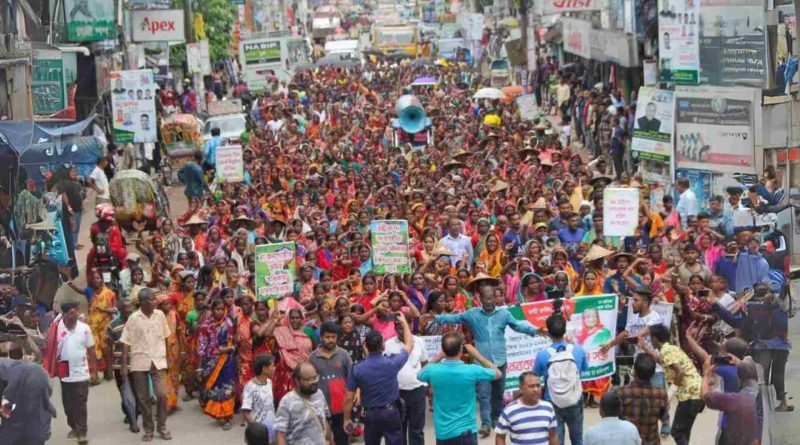Unrest Brews: Bangladeshi Tea Workers Demand Fair Wages
Amidst the lush greenery of Bangladeshi tea plantations, a silent revolution brews. The backdrop? A stark reality of meager wages barely sufficient for sustenance. At the heart of it, over 150,000 workers, their voices echoing defiance against the meagre dollar-a-day earnings.
In a country where the minimum wage pegs at a mere 120 taka per day, equivalent to a little over a dollar, discontent simmers. This discontent finds its voice in the resolute demands of the labor force, resonating through the rows of tea plants spanning more than 200 plantations.
Who are these workers? Often overlooked and marginalized, they predominantly hail from the low-caste Hindu community, tracing their lineage back to the laborers of the colonial era.
Their plea is simple: a 150 percent increment to their paltry earnings. For Anjana Bhuyian, a seasoned worker of 50 years, the current wage barely scratches the surface of survival. “A day’s wage can’t even secure a liter of cooking oil,” she laments, highlighting the harsh reality faced by many.
Fueling the flames of dissent is inflation’s relentless surge and the nation’s currency’s depreciation. The call for a wage hike to 300 taka a day reverberates across the tea estates, gaining momentum with each passing hour.
“We refuse to pluck another leaf until our demands are met,” declares Sitaram Bin, a stalwart of the Bangladesh Tea Workers’ Union, as he announces the commencement of a widespread strike.
Yet, amidst the cries for justice, the response from plantation owners falls short. A meager increase of 14 taka a day is proposed, emblematic of the disconnect between the labor force and those in power.
M. Shah Alom, chairman of the Bangladesh Tea Association, cites mounting challenges faced by the industry, pointing to declining profits and escalating production costs. Yet, amidst these challenges, the plight of the workers remains sidelined.
Philip Gain, a voice for the voiceless, denounces the exploitation entrenched within the tea industry. “Tea workers are akin to modern-day slaves,” he asserts, shining a light on decades of systemic injustice.
As the strike persists, the fate of these workers hangs in the balance, underscoring a larger narrative of socioeconomic inequality and the resilience of those who dare to challenge it.

